How Miles Bridges Put Himself in Perfect Position
The Hornets are locked in an early-season battle with the Warriors, winners of seven straight games. The teams have been trading blows for more than 47 minutes, with the lead changing hands 25 times. With 45 seconds to go, the score is tied at 102.
Charlotte has possession side out, and LaMelo Ball throws an inbounds pass to Miles Bridges, who quickly fakes a handoff to Ball, turns around and finds himself matched up with one of the greatest defenders in NBA history: Draymond Green.
Both products of the state of Michigan—Bridges from Flint, Green from Saginaw—the two players have long known each other, with Green taking a big-brother role in Bridges’s life when the latter was a sophomore in high school. So it would be fair to assume this matchup, in the waning moments of a tie game, meant a little bit more to both players.
“Draymond has been trash-talking me since I was like 15,” Bridges says.
“As the older brother, you don’t want to lose—you don’t even want to get scored on,” Green says, his voice growing slightly exasperated as he recalls what happens next.
Bridges starts driving right, then crosses over back to his left, only to be cut off by Green. But the Hornets forward adjusts quickly, spinning back to his right, absorbing some contact from Green and, finally, hitting a soft hook with his off hand over the outstretched arm of his big bro. 104–102, Hornets.
“I’m still pissed off,” Green says of the Hornets’ 106–102 win.
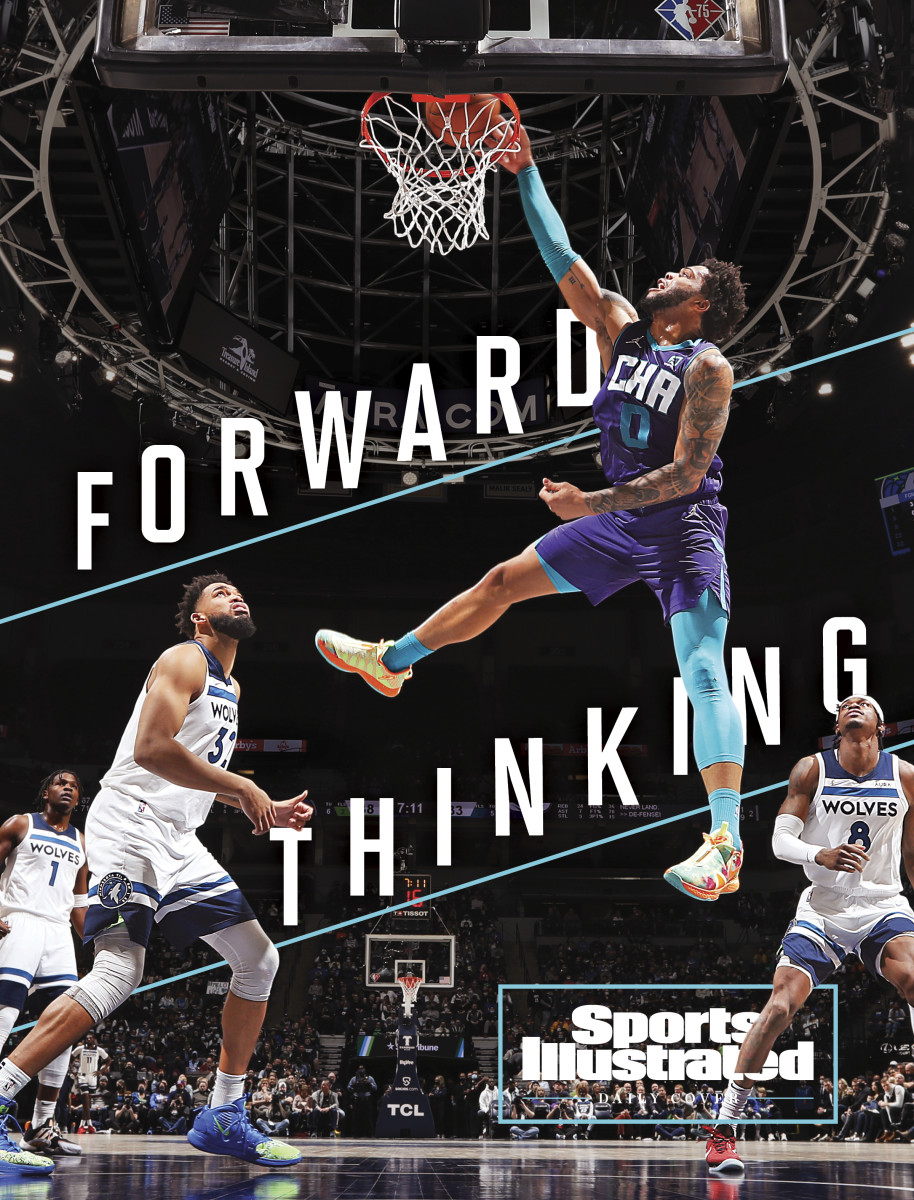
After the game, Green acknowledged the outcome in a group chat filled with Michigan State alums that both he and Bridges belong to. He tried to beat others to the punch before the jokes started flying.
“Miles f------ gamed me,” Green wrote.
Earlier in his career, Bridges wouldn’t have been asked to make a decision late in the game with the ball in his hands. But his spinning hook against Green in November was an example of the star turn Bridges has taken for the Hornets this season—a development that has him in contention to win the NBA Most Improved Player Award.
Bridges is currently averaging 20.0 points, 7.2 rebounds and 3.6 assists per game—all career highs by a considerable margin. For good measure, he is also posting career bests in steals (1.0) and blocks (0.9). The only other players putting up those numbers in every category? LeBron James, Giannis Antetokounmpo, Joel Embiid and Karl-Anthony Towns.
“Sometimes I’ll sit down and just think, Wow, this really is my dream,” Bridges says. “My first three years, I knew I could play better and help the team more. I’m glad the work is finally paying off.”
The work could quite literally pay off for Bridges, as the best season of his life is coinciding with his upcoming restricted free agency this summer. It’s a story line that’s lingered around Bridges throughout this season. In the summer, he reportedly declined a $60 million extension from the Hornets. During a one-week stretch in October, Bridges scored at least 30 points in three different games and opponents joked with him that he was playing for that big contract. (In their defense, Bridges says even his mom was surprised by his scoring outburst.)
Ask anyone on his team, however, and it becomes clear Bridges’s improvement is motivated by his desire to elevate his squad.
“He’s trying to win first and foremost,” third-year swingman Cody Martin says. “You can tell when somebody is playing for their stats—he’s playing to win. Those stats are coming because we need that.”
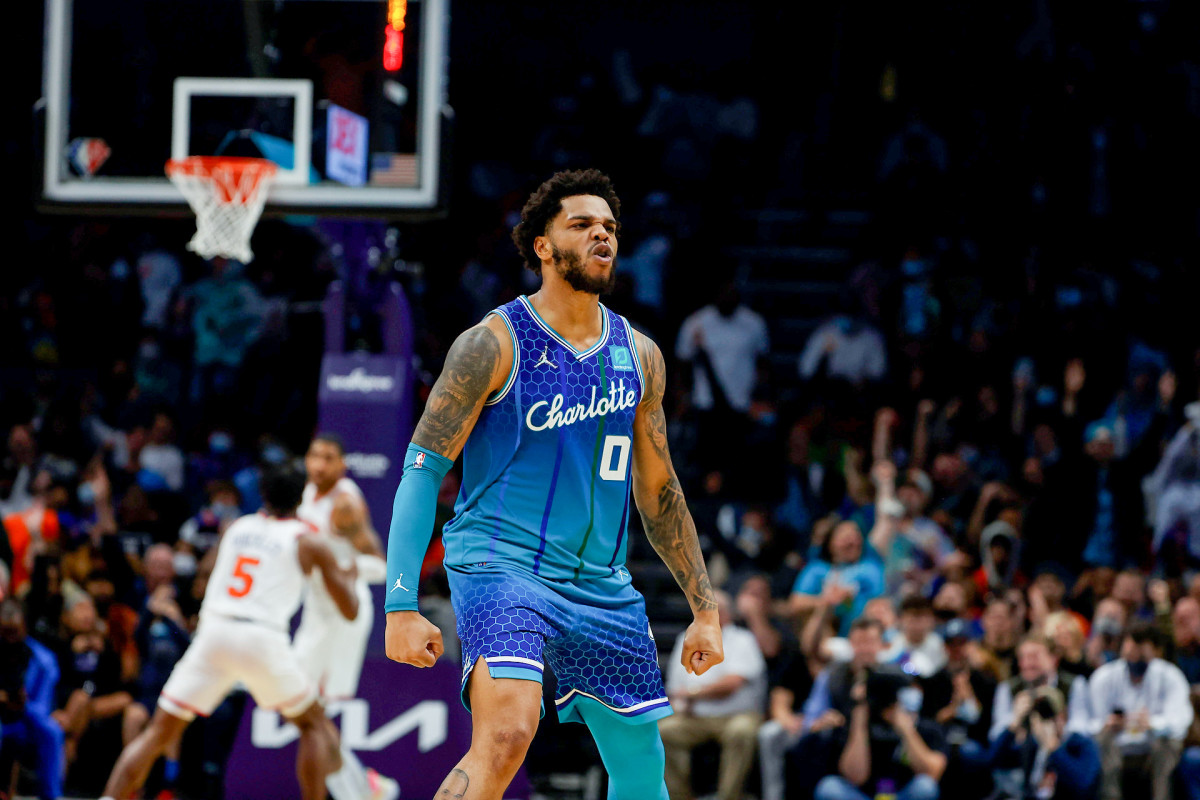
Says Hornets coach James Borrego: “A lot of players can say they don’t play for stats, but they don’t live it. Miles has lived it for the four years I’ve been with him. He’s a team-first guy. He doesn’t miss practice. He doesn’t miss games. He doesn’t take a shootaround off.
“His challenge has been: How do you handle a contract year? And his true character has shined. He’s not asked for more touches, more plays. Whatever it takes for us to win, he’s willing to do it.”
At 6'6" and 225 pounds, Bridges is built like a prototypical perimeter scorer, but he does a little bit of everything for the Hornets. He sets screens for LaMelo. He handles the ball in pick-and-rolls. He runs dribble handoffs from the elbow. He’s a blur in transition. He defends opponents’ best scorers. And he largely succeeds in most of these areas. According to NBA.com, Bridges is in at least the top third of the league in points per possession as a pick-and-roll ballhandler or pick-and-roll roller, and in transition, off isolations or coming off handoffs. Simply put, there’s no one way Bridges scores his points. His leap has come from improving all aspects of his game, something he worked tirelessly on over the summer.
In addition to his work in Charlotte, Bridges hit the gym multiple times a day with trainer Chris Johnson in Los Angeles. In the morning, it was all ballhandling drills. In the afternoon, he was working on in-game situations, such as attacking closeouts and using secondary moves and spins (all of which Green saw firsthand Bridges’s progress). And every day, Bridges finished with countless shots launched from the perimeter.
Versatility was imperative for Bridges. He admits his first two years in the league, he couldn’t be matched up with guards in certain drills. With Johnson over the summer, Bridges went through some of the same workouts as Sixers guard Tyrese Maxey. And now when Bridges has the ball at the top of the key, he can come off a screen and whip a pass to the corner if the defense collapses on him.
“You have to put in the work more than anything,” says Gordon Hayward, the 12th-year veteran who went from averaging under six points a game his rookie season to more than 20 his final year with Utah in 2017. “It’s the behind-the-scenes work that goes unseen. And then a little bit of it is opportunity, having a bigger role, having the offense run through you more. It’s a combination, but certainly he’s put in the work.”
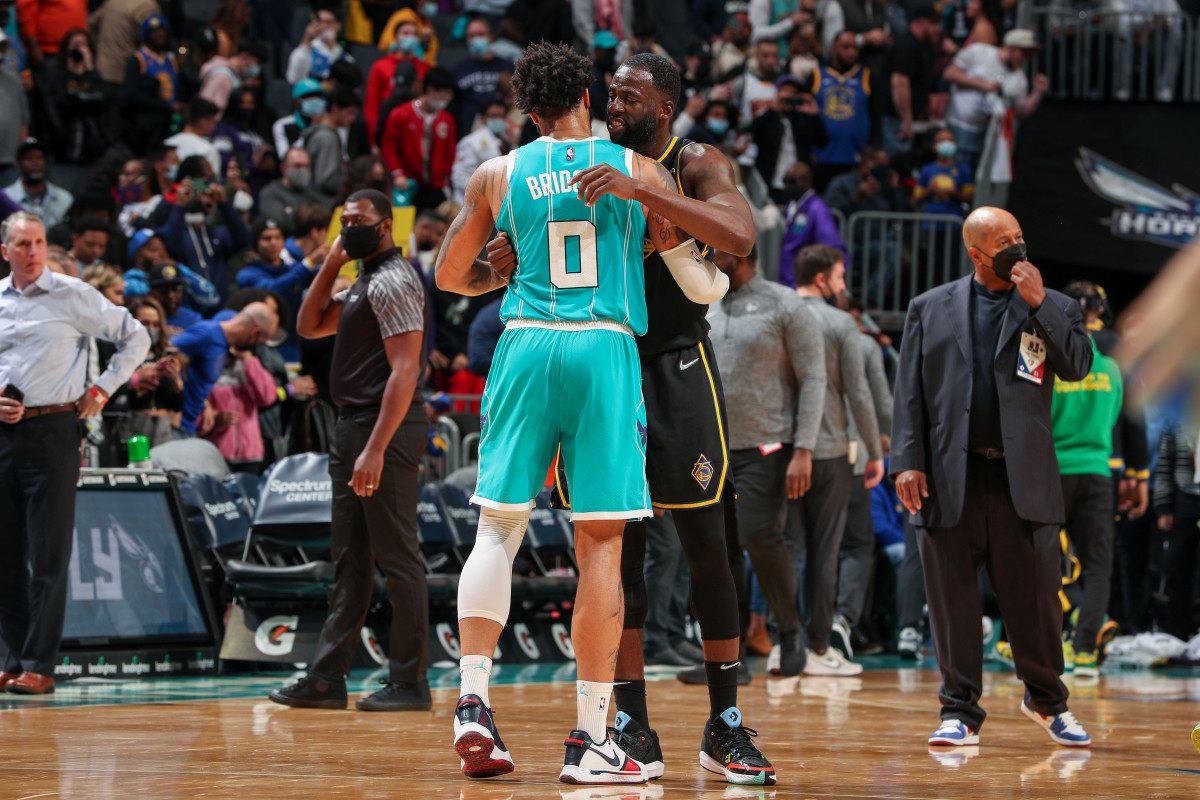
It helped that Bridges got a taste of having more opportunity last season. Bridges was frustrated his second year in the league, when Charlotte was a young team and he wasn’t made a priority for touches. With the Hornets hampered by injuries in the second half of last season, Borrego put the ball in Bridges’s hands more often, kick-starting the process of turning him from role player to decision-maker. That’s the area where Green has particularly noticed improvement.
“He’s become much more trustworthy with the basketball,” Green says. “That’s the growth you want to see in a young guy. The reality is just about everyone should be in the gym getting better. And most guys do. But does your decision-making improve year to year? Because that’s what it really takes to win at a high level.”
At the start of training camp, Borrego says he knew he needed Bridges to be more involved in the offense, even if he didn’t have a specific number of touches in mind. As the Hornets’ coaching staff grew more comfortable trusting him with the ball, Bridges says he also made it a point to remain coachable. It's a point of pride for him to experience the payoff that’s come from receiving coaching and working relentlessly on all aspects of his game. But Bridges says he’s most proud of being able to create more for his teammates.
His excitement grows when he talks about how much he loves basketball and how much he enjoyed spending all those hours tweaking his game in the summer. When asked if it was important to him to make the All-Star team (Bridges did not), he says, “As long as we win, everybody’s going to get the glory.”
As far as personal glory goes, Bridges is in line to be recognized with a healthy payday this summer, either from Charlotte (which can match any offer he receives) or another team with cap space. Could the Blazers, trying to retool around Damian Lillard, make an offer? What about the home-state Pistons? There is no shortage of teams who would be interested in Bridges’s varied skill set. Comparing him to other players at his position salary-wise, it’s possible Bridges earned himself in the neighborhood of an extra $30 million by playing out the last year of his current deal.
Ask Bridges about his incredible foresight and he instead makes it clear he never meant to make this season some massive gamble on his talent. His desire to improve his game came more from wanting to make the playoffs than anything else. He says he may have even accepted Charlotte’s contract offer over the summer if not for his agents.
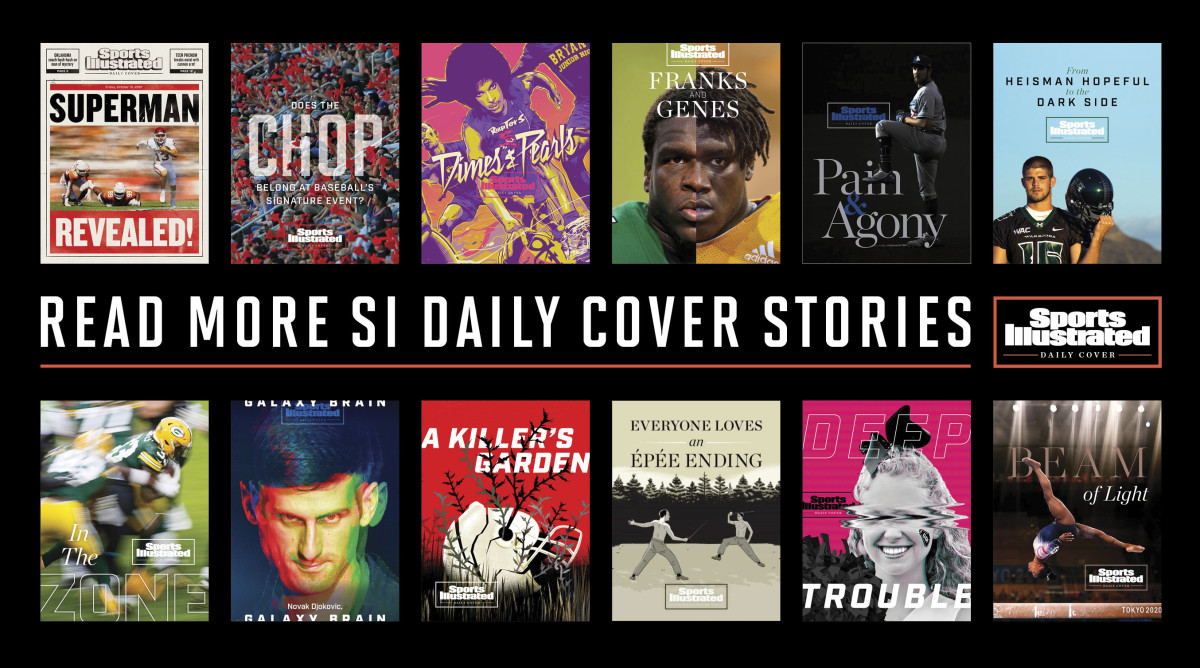
“If it wasn’t for them I probably would’ve taken the deal,” Bridges says. “They got more confidence in me than I have sometimes.”
Bridges’s success in the midst of his contract situation—particularly as someone coming from Flint, where Bridges says you “take risks every time you walk outside”—is not lost on Green, who knows how ruthless the business side of basketball can be.“I’m sure he could have taken some extension for way less than what he’s worth,” Green says. “You’re talking tens of millions of dollars. These aren’t small differences. Let’s say he turned down $30 million. There’s a certain level of stress that comes with that. There’s a level of pressure that comes with that. Miles has two young kids. It takes someone super elite at what they do to deliver under that pressure.
“It’s great to see guys win from a player perspective. You could’ve taken less money, and it would’ve been celebrated for the general manager. He bet on himself, and it’s going to pay off for him tenfold. It doesn’t always go that way.”
What will happen in the summer is likely the least of Bridges’s concerns at the moment. As much of a revelation as he’s been, the Hornets have struggled as a team recently. Charlotte was 28–22 on Jan. 28 after a win over the Lakers—punctuated by Bridges letting Russell Westbrook know he was too small after barreling through him for a fourth-quarter score. But the Hornets lost nine of 10 after that night and entered the All-Star break ninth in the East, with only a one-game lead over the Wizards for a spot in the play-in tournament.
Even with Bridges scoring at least 20 points in five of his last six games before the break, Charlotte hasn’t been able to capitalize. If there’s a silver lining for the upcoming playoff chase, it’s that two of those losses in the recent downturn came in overtime, and another was by one point. The Hornets are close, and the rotation should be bolstered at some point if Hayward can return from a left ankle injury.
And if the Hornets retain Bridges in the offseason, they’ll have a promising core to build around for the future. Ball, 20, just made his first All-Star Game. Bridges, 23, has developed a great chemistry with his point guard over the last two seasons. And the young duo has succeeded despite a crowded perimeter rotation in Charlotte, with Hayward, Terry Rozier and Kelly Oubre Jr. also requiring shots and touches.
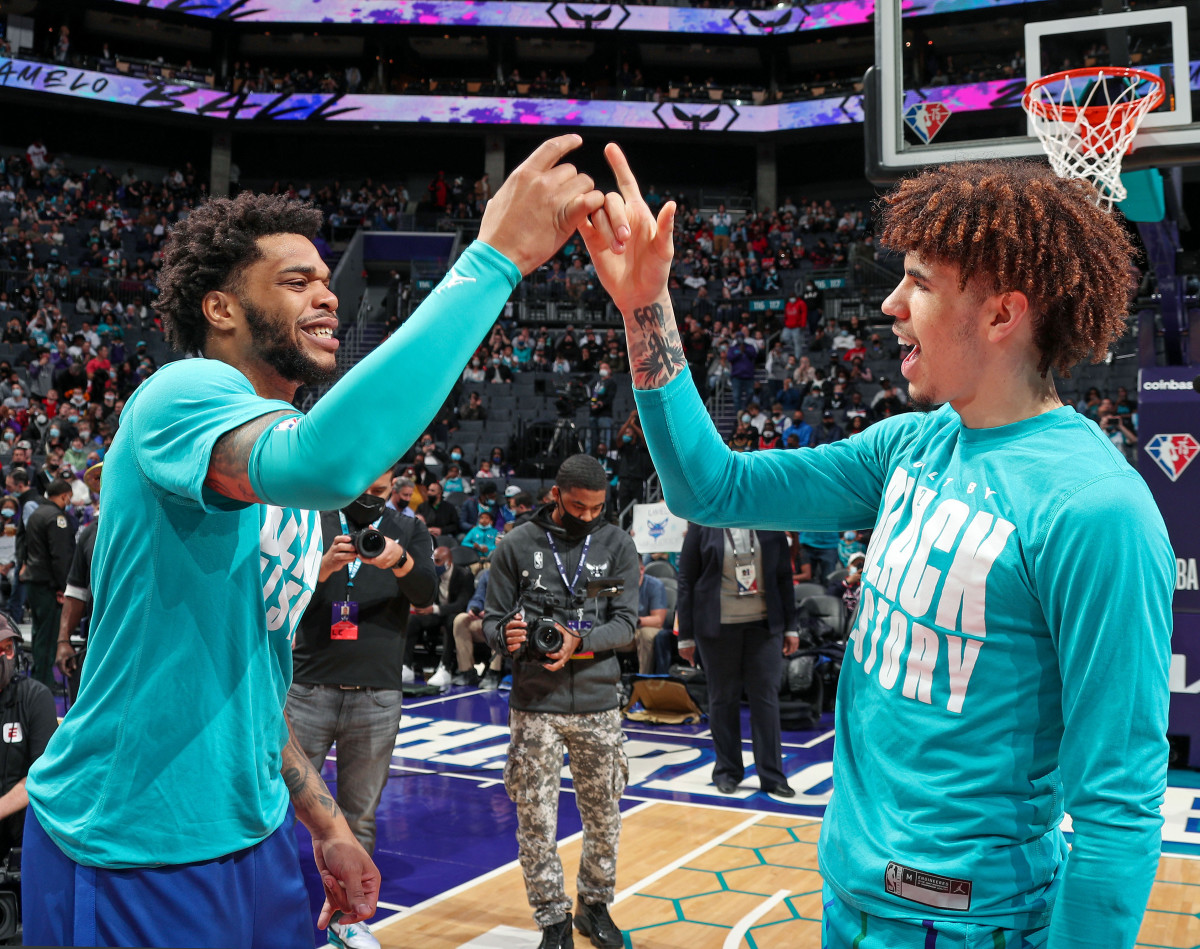
It helps that Bridges’s yearning for team success is genuine. He’s especially good buds with Ball and Rozier. The three often hang out together on the road. (For those wondering, Bridges, Ball and Rozier like to keep it simple and binge-watch TV shows like BMF or Power. Rozier, as the veteran and thus the one with the biggest room on the road, is usually on hosting duty. And like most people, Bridges thought Seong Gi-hun should have gotten on the plane at the end of Squid Game.)
What the Hornets lack on the floor at the moment is a stingy defense. While Bridges eagerly takes on assignments against nearly every position, it’s not enough for a team that ultimately lacks perimeter stoppers and stout defense at the rim. The frontcourt has been an issue all season long, and while the recent acquisition of Montrezl Harrell should boost scoring, it won’t help the backline of the defense.
Bridges is desperate to make the playoffs, not only to experience it for himself but to enact a culture change and make Charlotte “a basketball city again.” That commitment to lift up not only himself but everyone around him is what impresses Borrego the most about Bridges.
“It’s not easy to verbally lead in the NBA,” Borrego says. “Most guys don’t have the ability or the willingness. Miles, to his credit, is willing to challenge his teammates and hold himself accountable as well. I love what he’s doing on the floor, but I’m most proud of his ability to lead and the courage he’s shown to put himself on the line.”
“The guy who’s communicating, the guy who’s huddling up people on the free throw line, the guy who when it’s going wrong says we need to get stops, I have a tremendous amount of respect for them,” says Green. “When you have a leader who is becoming more comfortable with his own voice, I understand the success that follows.”
Bridges is having fun with all of it. He enjoys being a leader. He gets texts from Hornets owner Michael Jordan praising his big games. He notices opposing teams are playing harder and resting their stars less in Charlotte. He likes the increased attention from defenses, further adjusting his game as the season goes on. He continues to file away areas he can improve in, such as reading defenses when he has the ball in his hands.
What’s most rewarding for Bridges, though, is not the potential payday, nor the growing recognition from fans or media. It’s what he experienced in that game against his big brother Draymond, what every NBA player hopes to be: a difference-maker in the game’s biggest moments.
“Does your team depend on you to win the game?” Bridges says. “I play a big part if we’re going to win or not, so I gotta show up every night. My first three years, if I didn’t show up some games, people would pick up the slack. Now they need me to play up to where I’m playing for us to win. Just to know how important you are to the team, I’m happy to be in this position.”
More SI Daily Covers:
• Michael Jordan’s Fitting End, 20 Years Later
• NBA Replacement Players Don’t Want the Ride to End
• Inside John Starks’s Historically Bad Game 7 in 1994
